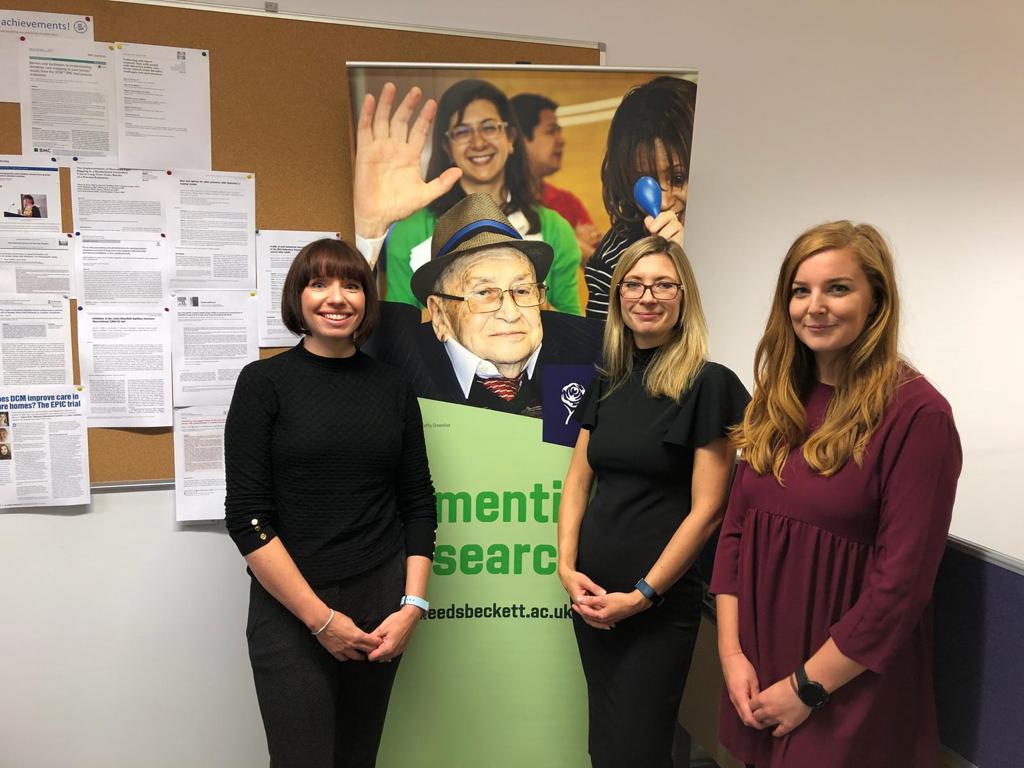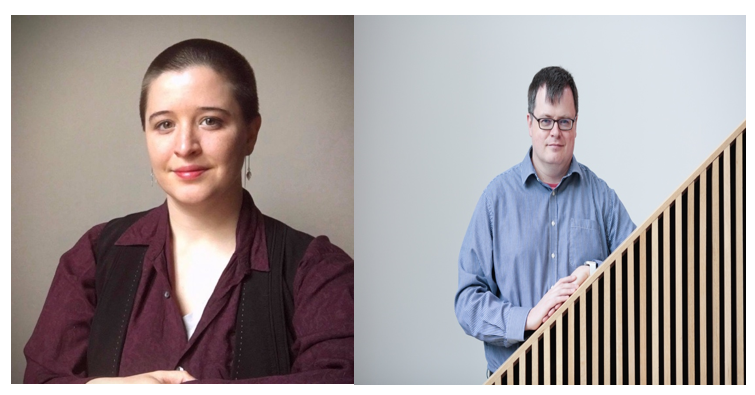Guest Blog

ENRICHEnabling Research in Care Homes
GUEST BLOG
Welcome to the ENRICH guest blog
Read the real-life experiences of people involved in care home research.
Anyone with a story or advice they'd like to share is encouraged to make contact using the contact us page.
Read about current news and developments for care homes research in the new posts section.
Why we should ‘recognise’ care homes through relational research
This blog is based on the paper: Toms, Green, Orrell and Verity (2020) Building relational research capacity in care homes in the covid-19 era: applying Recognition Theory to the research agenda.
Taking a theory-based relational approach to building research capacity could improve life in care homes. In this blog authors Stephanie Green, Dr Gill Toms, Prof Fiona Verity, Dr Alison Orrell of their recent open access paper explain why.
Identifying approaches, barriers and facilitators to visiting in care homes during the COVID-19 pandemic
The research team are: Prof Claire Surr, Dr Rachael Kelley, Dr Alys Griffiths, (all pictured) Dr Sarah Smith, Prof Anne-Marie Bagnall, Rebecca Platt and Olivia Robinson.
The topic of care home visiting has been the source of much discussion and debate in the news and on social media since the start of the COVID-19 pandemic. Visiting has been restricted and care homes have adopted various practices to support ongoing contact between residents with dementia and their family members. Some of these may be more successful than others and may work better for some residents than others. This blog gives an overview of a study, being conducted by researchers at Leeds Beckett University, which aims to explore these issues in more detail, and how care home staff, managers and owners can take part.
The other keyworkers in care homes: Implications of including cleaning, catering, and housekeeping staff in social care workforce strategies and practices relating to COVID-19 recovery
Olivia Luijnenburg is a Research Associate at the Health and Social Care Workforce Research Unit (HSCWRU) at King’s College London. She is a medical anthropologist and has a special interest in residential care for older people, spirituality and health, qualitative health research, and ethics in care. She is close to finishing her PhD research at the University of Surrey on the ethical implications of spirituality in residential care for older people.
In this guest blog, Olivia Luijnenburg discusses a research project looking at the experiences and views of cleaning, catering, and housekeeping staff in care homes during the COVID-19 pandemic. She is recruiting cleaning, catering, and housekeeping staff working in care homes for video or telephone interviews. Participants will receive a £20 voucher as a thank you. She would also like to talk to care home managers and staff in charge of human resources in care homes. If you are interested or want to learn more, contact Olivia at olivia.luijnenburg@kcl.ac.uk
Skin Health in Care Homes
Fiona is a registered nurse and researcher. She worked with older people in practice settings for many years. Fiona’s research interests are in older person care and long-term skin conditions. Her expertise is in working with older people, co-creation and knowledge mobilisation, that is, working with health and social care staff and residents to move knowledge across communities to catalyse change. Judith is a registered nurse and health psychologist who works with practitioners and patients to get research into practice to support people getting best care. She is an expert in co-creation and group facilitation and her enthusiasm takes others with her on new journeys to improve lives. Megan is a medical student at the University of Leeds and also works as a carer in a residential home.
In this guest blog Fiona Cowdell, Judith Dyson (Birmingham City University) and Megan Heague (University of Leeds) introduce the first phase of a programme of care home research. Our aim is to work with staff and residents to improve skin hygiene practices and skin health for older people living in care settings.
Dementia care: what we can learn from the research?
Martha Powell is a Communication and Marketing Manager at the NIHR Centre for Engagement and Dissemination. She works closely with the team on the NIHR Evidence website, supporting the publication of Alerts, Collections and Themed Reviews.
In this guest blog Martha Powell, from the NIHR Centre for Engagement and Dissemination, speaks about a recently published collection that brings together NIHR-funded dementia research and asks what impact it could have on family carers, health and care professionals, and people living with dementia.
How can Care Homes support Residents to Sit Less and Move More?
Dr Catherine Pemble is a Research Assistant in the Faculty of Social Sciences at the University of Stirling. She has a background in psychology, sociology, and disability studies and experience in supporting vulnerable adults. Her current research involves exploring the different ways in which older people with and without dementia can be supported to nurture their relationships, follow in their interests, and maintain their health throughout their lives. She can be found on twitter at @catherine.pemble. Dr Grant Gibson is a Lecturer in Dementia Studies in the Faculty of Social Sciences at the University of Stirling. Grant is a Social Gerontologist, who’s research interests focus on the use of non-pharmacological and social interventions within dementia care within community and residential environments. Grant’s research also focuses on the use of co-production and participatory research methods within dementia research. Grant can be found on twitter at @DrGrantGibson
In this blog we introduce the ‘Sit Less Move More’ study; a research project exploring how cultures of increased physical activity can be fostered within care homes. We provide information about a questionnaire survey we are distributing across the UK, and invite any staff working within the care home sector to take part in our study
Understanding what staff working in care homes think about using antipsychotics for residents with dementia
Amna Raza is a PhD student at the School of Pharmacy, University of Reading. She studied pharmacy which enabled her to gain some expertise in industry, hospital, community and pharmaceutical sales and marketing. Her passion being a dementia researcher includes development of interventions to help staff who look after residents with dementia in care homes. Her interest includes adventure travel, art and design.
Amna is conducting a survey to explore staff attitudes to the use of antipsychotic medication in residents with dementia living in care homes, using the ‘Antipsychotics in Dementia Attitude Questionnaire (ADAQ)’. In this guest blog she shares her own educational journey and talks about the development of the questionnaire. She invites staff working in care homes to complete her survey so that she can map what they think about the use of antipsychotics in residents with dementia.
Dementia Care Practices and Incontinence-Related Stigma in Care Homes
Leah Hewer-Richards is a third-year PhD student at the University of Southampton. Her current study focuses on incontinence-related stigma in residential care and her interests include citizenship, care practices and dogs.
My PhD study is exploring the lived experiences of care home staff supporting people with a dementia with continence care in residential care homes in England. The aim of the study is to develop an understanding of how care staff understand their role in relation to continence care, and managing associated stigma. This data is generated by gathering accounts of interactions during continence care via telephone or video call interviews.
An update on the GOOD NIGHT COVID trial
Dr Kinda Ibrahim is a Senior Research Fellow in Geriatric Medicine at the University of Southampton and member of the ARC Wessex Ageing and Dementia theme. Kinda has specific interest in understanding how evidence-based findings can be translated into practice focusing on the experiences and preferences of older people.
In this blog the GOOD NIGHT COVID research team give an update about their recent trial in care homes where they explored whether a simple and cheap intervention – which involved rinsing nose and gargling mouth with salty water – could be implemented by care home staff as a way to prevent the transmission of covid-19 from staff to residents.
Supporting families with decisions during COVID-19
Dr Nathan Davies is Senior Research Fellow at University College London (UCL) and an Alzheimer’s Society Junior Fellow. His current work involves family carer decision making, hydration and nutrition, and comfort/discomfort on acute hospital wards at the end of life. Dr Nuriye Kupeli is an Alzheimer’s Society Fellow at the Marie Curie Palliative Care Research Department, UCL. Her work focusses on family carers’ experiences of compassion while caring for someone living with dementia and its impact on carer wellbeing.
In this guest blog Nathan and Nuriye discuss the development of a document designed to help carers when making difficult decisions about care and end of life care. It also provides a variety of information including the signs and symptoms of COVID-19 which may be different for older people, and the legal aspects of making decisions. There is also an interactive booklet for carers to write questions they might like to ask health care professionals.








